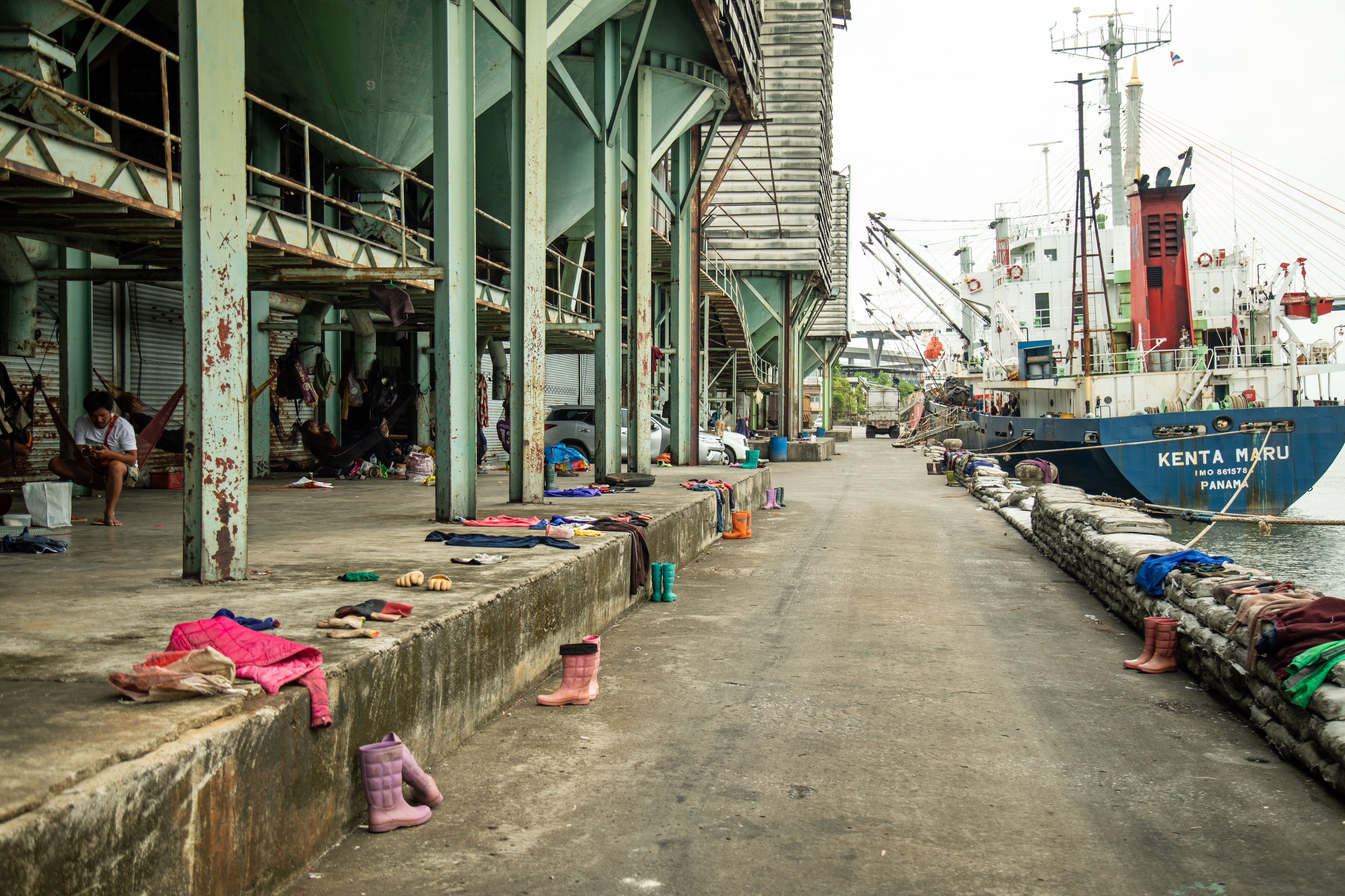
EU takes concrete action to combat forced labour in global fisheries
The European Parliament has just voted on the Fishing Control Regulation (FCR). This is the biggest fisheries reform in a decade, and has been welcomed with enthusiasm by the Environmental Justice Foundation. One of the key aspects of this Regulation is the introduction of mandatory Remote Electronic Monitoring (REM) - including CCTV - for a significant portion of the EU fleet, with a view to better monitor compliance with EU rules on the discarding of fish. At the same time, the reform allows EU Member States to use remote electronic monitoring systems to make sure other rules of the EU’s Common Fisheries Policy are respected.
This is key, as another major advance is the focus on forced labour, as defined in ILO Convention (1930) as a serious infringement of the rules of the EU’s Common Fisheries Policy (CFP). The Regulation recognises that “conducting fishing activities with the use of forced labour is contrary to the objectives of the common fisheries policy” and “undermines a level-playing field”. Following the revelations of a recent investigation into China’s distant-water fleet published by Ian Urbina in The New Yorker, these two advances could serve as a potential cornerstone for the EU to lead the global charge in ensuring that other nations follow suit in creating a more just, fair and sustainable fishing industry worldwide, says EJF.
In particular, with the European Parliament's approval of the FCR reform, it is now time for the European Union to take swift and resolute action on several critical fronts, according to the NGO:
Mandating REM Internationally: Having provided for the use of REM for a significant portion of its fleet, the European Union should intensify its efforts to create mandatory REM regimes on an international scale, particularly within Regional Fisheries Management Organizations (RFMOs). RFMOs play a crucial role in regulating fishing activities in various parts of the world's ocean. EJF has witnessed systemic human rights abuses, including forced labour, in the areas of RFMOs, such as in the Indian Ocean, which must urgently be eradicated. By pushing for the adoption of REM systems, the EU can take the lead in promoting transparency and accountability within RFMOs, thereby safeguarding the rights of vulnerable workers and ensuring ethical and sustainable fishing practices.
Addressing Forced Labour: The European Union should lead efforts internationally to take urgent and concrete measures to reduce crew vulnerability to human and labour rights abuse, including by encouraging consistent alignment of rules of RFMOs with international human and labour rights conventions.
The underlying principle here is to level the playing field, put an end to systemic human rights abuses, and prevent the overexploitation of fish stocks upon which many developing countries depend for their livelihoods. EJF says that the European Union's commitment to combating forced labour in the fishing industry, coupled with the implementation of Remote Electronic Monitoring, marks a pivotal moment in the ongoing fight for sustainable and ethical fishing practices.
Steve Trent, CEO and Founder of the Environmental Justice Foundation, said “By taking a leadership role in the global arena, the EU can inspire other nations to follow suit, ultimately working toward a future where the oceans are protected, workers' rights are respected, and the global fishing industry operates ethically and responsibly. This is a commendable step toward preserving our marine ecosystems and the millions of lives that depend on them.”
ENDS
Notes to editors
Before the regulation was adopted, 52 organisations called on negotiators of the fisheries control regulations on the importance of an ambitious mandatory REM mandate. One of the reasons mentioned was that this tool can help tackle cruel and illegal fishing practices: A joint statement made two years ago emphasised the significant impact that widespread adoption of REM in the EU can have. As stated in the letter: "Widespread adoption of REM in the EU could be a crucial step in the battle to save marine ecosystems and the hundreds of millions of people who depend on them. It will bolster the EU's role as a global leader in the fight against illegal fishing and push countries across the world to adopt the same, critical technology. Wide adoption of robust electronic monitoring will help curtail unsustainable, cruel, and illegal fishing practices, such as discarding, using dolphins as shark bait, and forced labour in the global fishing sector."
To provide some context, here are the relevant changes in the Regulation (available here) regarding forced labour and Remote Electronic Monitoring:
Forced Labor (FL): According to the updated Regulation (p.21, 114), conducting fishing activities with the use of forced labour, as defined in Article 2 of the Convention on Forced Labour, 1930 (No. 29) of the International Labor Organization, will constitute a serious infringement. This change reflects the EU's commitment to ensuring that forced labour in the fishing sector is no longer tolerated.
Remote Electronic Monitoring (REM - CCTV): According to the updated article 13 vessels exceeding 18 metres in length that are high risk of breaking the landing obligation, will be required after a four year transition period to have mandatory CCTV systems on board. The article (paragraph 6) also allows other provisions of the common fisheries policies that could include forced labour.
SIGN UP FOR OUR EMAILS AND STAY UP TO DATE WITH EJF
